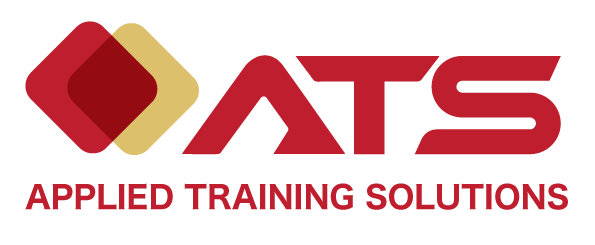Course Summary
To operate under the National Heavy Vehicle Accreditation Scheme (NHVAS) , operators may need their drivers, schedulers, and supervisors or managers of drivers, or schedulers to complete fatigue units of competency offered by approved Registered Training Organisations (RTOs).
The National Heavy Vehicle Regulator (NHVR) as approved Applied Training Solutions (ATS) to deliver and assess these nationally recognised fatigue management courses for NHVAS accreditation purposes.
These online, instructor-led courses provide the knowledge and skills to manage fatigue and work safely within the Australian Transport and Logistics industry, administer and manage a fatigue risk management system, and meet the NHVAS requirements. They provide drivers, schedulers, supervisors, and managers with information critical to effectively managing the risk of fatigue, in road transport operations.
For the purpose of complying with the National Heavy Vehicle Accreditation Scheme (NHVAS) fatigue management module, operators may need their drivers, schedulers, and supervisors or the managers of drivers and schedulers to complete specific units of competency that are delivered by NHVAS approved Registered Training Organisations (RTOs).
ATS' fatigue management courses are based on the following nationally recognised units:
Suitable for supervisors, schedulers and managers.
Suitable for agents and managers of heavy vehicle drivers and/or business owners.

| Course name | Who is this course for? | Course Detail |
|---|---|---|
Fatigue Management Level 1 |
General transport and logistics staff, drivers, and operators – particularly those who operate under the National Heavy Vehicle Accreditation Scheme (NHVAS). |
Successfully complete this course to attain the nationally recognised Statement of Attainment for the unit TLIF0005 Apply a fatigue risk management system. This unit involves the skills and knowledge required to apply fatigue management strategies within the transport and logistics industry. You will learn how to identify and act on signs of fatigue and implement appropriate strategies to minimise fatigue during work activities. |
| Fatigue Management Level 2 |
Schedulers and Supervisors within a transport and logistics organisation – particularly those who operate under the National Heavy Vehicle Accreditation Scheme (NHVAS). |
Successfully complete this course to attain the nationally recognised Statement of Attainment for the unit TLIF0006 Administer a fatigue risk management system. This course provides the skills and knowledge required for road transport schedulers or supervisors/managers to administer a fatigue risk management system within the Transport and Logistics industry. You will learn how to identify and managing risks associated with fatigue during heavy vehicle driving, how to operate within a fatigue risk management system, including planning trips and updating records, and developing and implementing policies, procedures and strategies to minimise fatigue in the workplace. Legislative and regulatory requirements are applicable to the outcomes of this course - specifically the Heavy Vehicle National Law (HVNL). |
| Fatigue Management Level 3 This course is not currently available online. It is customised and contextualised based on the needs of each individual organisation. Please contact us for more information and pricing. |
Agents and managers of heavy vehicle drivers and/or business owners defined as a ‘relevant party’ under Heavy Vehicle National Law (HVNL), with responsibility for operating policies and procedures; human resources and contract provisions; and arrangements for managing safety and fatigue risk management. This course is also intended for road transport business owners and agents of heavy vehicle drivers who in future may be required to satisfy National Heavy Vehicle Regulator (NHVR) Fatigue Management Accreditation legislative requirements. Prospective applicants should check with the NHVR before undertaking training and/or assessment. |
Successfully complete this course to attain the nationally recognised Statement of Attainment for the unit TLIF0007 Manage a fatigue risk management system. This course provides the skills and knowledge required for road transport business owners and agents of heavy vehicle drivers to oversee and operate a fatigue risk management system within the Transport and Logistics industry. It includes identifying legal requirements, responsibilities and liabilities for establishing and/or improving fatigue risk management implementation plans; operating within a fatigue risk management system; and managing operations. It also includes communicating; updating records, policies and procedures; acting appropriately on reports and identified breaches of fatigue management regulations; and ensuring operational systems are compliant with fatigue management regulations and policy. Legislative and regulatory requirements are applicable to this unit. The primary legislative requirement of this unit of competency is the HVNL. |
Enrol Now
Please select the Fatigue Management course into which you would like to enrol.
